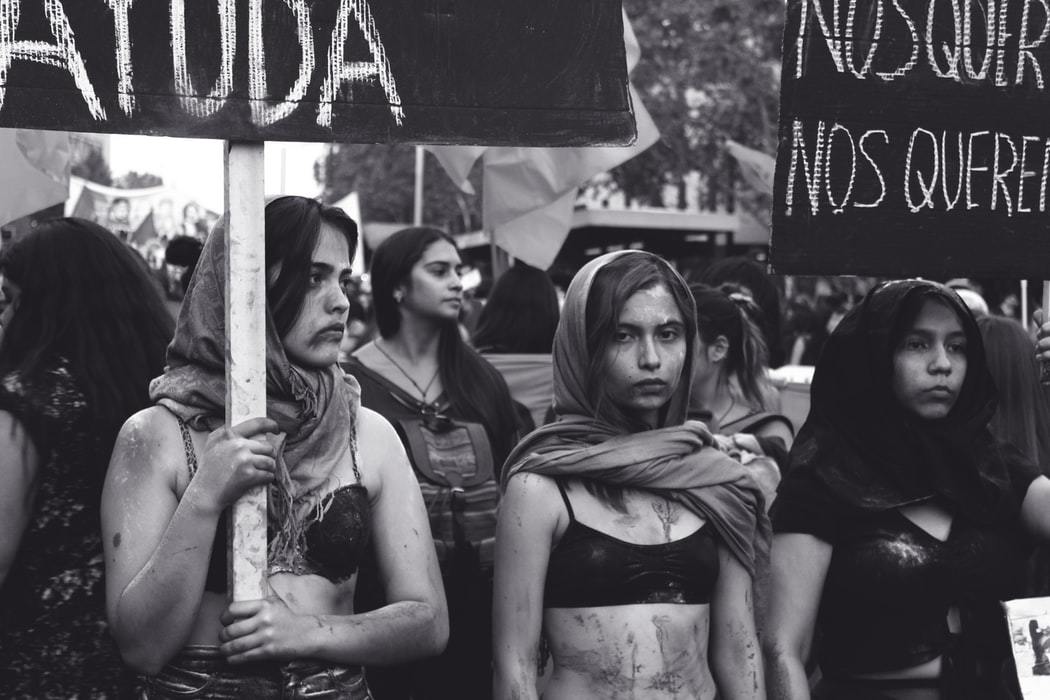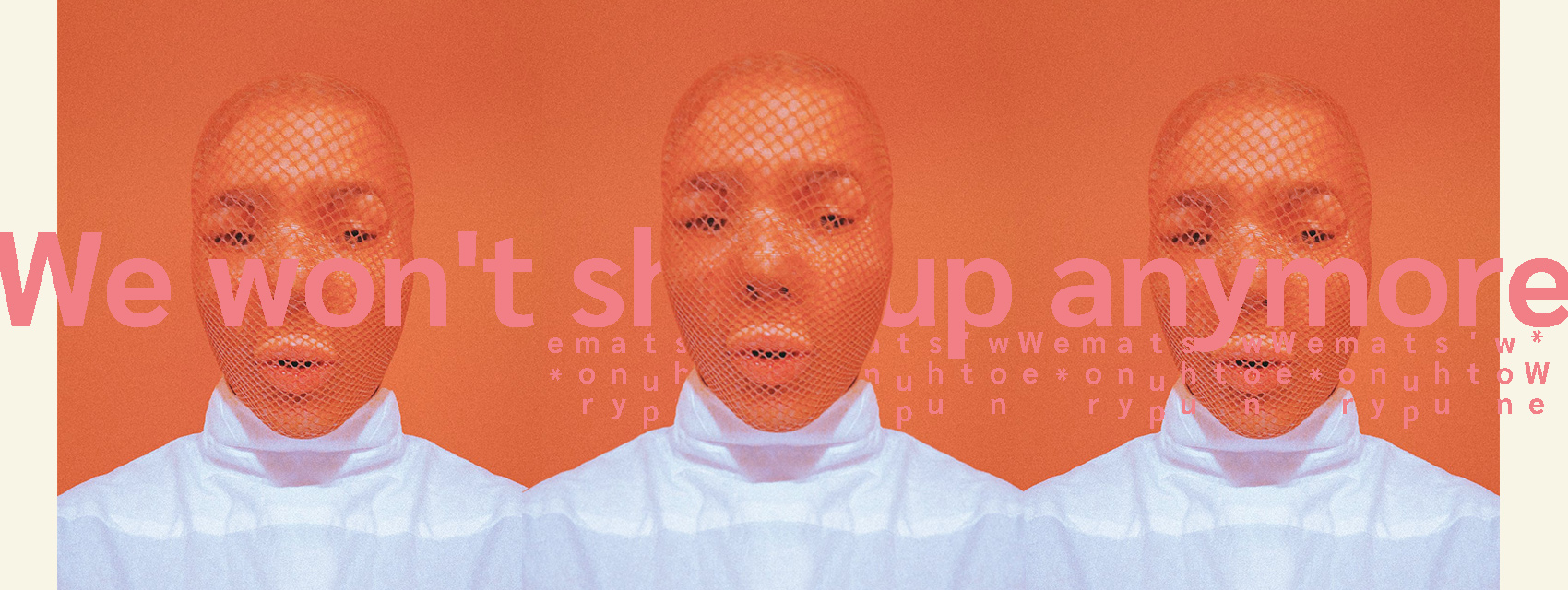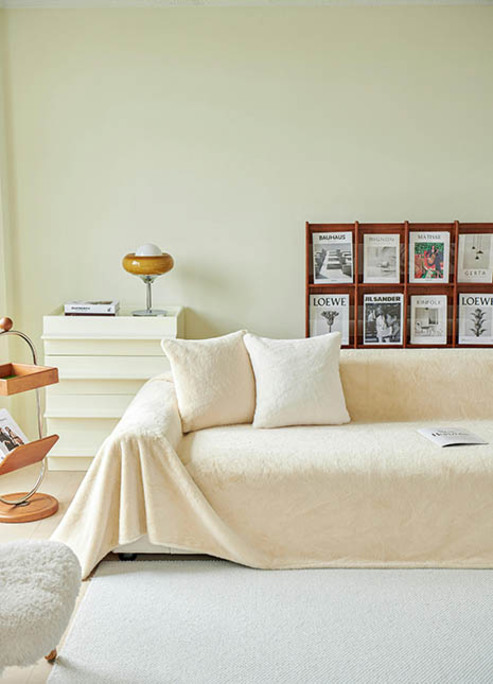5 Women Share Their Abortion Stories With Us
Women's rights are human rights.
After what has felt like the gradual erosion of abortion access from countries around the world, most recently in the form of Poland’s draconian legislation, we asked five women from various countries to share their experiences of abortion with us first hand.
Last month's protests in Poland were some of the largest that the country has seen in its recent history. Despite already having some of Europe’s strictest abortion laws- which only allowed for cases of fetal abnormality, incest, rape, or if the mother’s life is at risk -the Polish constitutional court furthered this standing by removing fetal congenital disorder from the approved conditions. Of the 1,100 abortions officially recorded in Poland last year, 1,074 were of this nature.
In spite of a global pandemic, the backlash was immediate and immense snowballing into a strike that gained increasing velocity and paralyzed the nation. To the detriment of the thousands of people who protested, the Priminister's office has said that they are delaying implementing the law until a “new position” can be decided. The strike acted as a global reminder for those who are pro-choice that vocal dissent is necessary for protecting what international law currently defines as a human right.
With safe access being regularly threatened and politicized on the global stage, the fight over this terrain is now a familiar and bitter one. In October this year 32 UN member nations, seven of which are classed as authoritarian regimes signed an anti-abortion declaration. In a frightening yet unsurprising blow to democracy given recent events, The US also co-signed. Even if governments don’t ban abortions outright, rollbacks to legislative procedures that aid women’s access to safe abortions threaten the safety of women globally.
In The US alone there have been repeated attempts to contest the legality of a woman's right to choose that endeavor to challenge the landmark Roe V’s Wade ruling, most recently in the appointment of Supreme Court Justice Amy Coney Barrett who believes that the law is "barbaric". Last year Alabama saw 25 male Republican senators vote to implement a law making abortion a felony, with a maximum sentence of 99 years in prison for doctors, banning it even in cases of rape and incest. Along with numerous attempts from states to pass “heartbeat bills” -which ban abortion after a six-week gestation period before a woman may even realize she’s pregnant- access to services within a realistic timeframe may become increasingly difficult. During the Coronavirus pandemic, 11 governors manipulated states’ health response by attempting to remove abortion care from essential services. Care in Arkansas, Ohio, Tennessee, and Texas was stalled.

In Turkey, despite abortions being legal since the early ’80s, the conservative government has attempted to chip away at their accessibility over the last decade. Public hospitals are allowed to turn women away by refusing treatment, and private hospitals are incredibly expensive. Poor or low-income women, many of whom are refugees, have no choice but to turn to unlicensed clinics. Married women are also required to have their husband's approval in order to be eligible. For women trapped in abusive relationships being permanently tied to their abuser through a shared child is devastating.
Often the main cry of anti-abortion defenders in the sanctity of life, but if we take Romania as an example- a country which has played tug of war with its stance on abortion- then a pattern emerges. In the years that abortion was illegal, there were many more abortion-related maternal deaths than when it was legal. The same is true for Nepal, The US, Latin America, and Worldwide. There is no doubt that the public health impact of unsafe abortion is directly linked to its legal status.
More women live when abortion is legal. Restricting access doesn’t prevent them from taking place, it merely makes them unregulated and unsafe. Forcing women into undergoing back-street and potentially fatal procedures feels like hypocrisy manifested from the majority of male politicians who often cite the sanctity of life as their main objection.
Democratic countries claiming jurisdiction over a population in matters of human rights goes hand-in-hand with the erosion of said democracy, and governments continue to use women’s bodies as a battleground to exploit a rift in a culture war. Blatant power grabs to assert control for electoral gain that are thinly veiled behind religion are too readily accepted in political and cultural discourse.
Societies that adequately invest time and funding into sex education, free contraception, healthcare, support, and pregnancy prevention are investing in gender equality and economic security. Equal access to all of these advances social progress and prevents women from being stuck in cycles of poverty; without these protections, it is often marginalized and low-income women pay the heaviest price. Acknowledging that abortion provides women with an opportunity to govern their own lives is vital for global social progress. Even when access is available stigma, shame, and social ostracisation are still challenges faced by many women for having agency over their own bodies.
Many thanks go to the incredible women who chose to share their stories with us.
Noelle, US
I was at grad school when I fell pregnant. Although I was in a committed relationship we weren’t ready for children and I just wasn’t in a good financial standing at the time. I was studying in Arizona, back in 2013 there was no Planned Parenthood in my city so we had to drive two hours for the initial ultrasound.
After my second scan, I was sent to the hospital after being told that I may be having an ectopic pregnancy as they couldn’t locate the fetus. It turns out that the ultrasound machine at Planet Parenthood was just old and not up to scratch, a testament to how desperately underfunded the service is- generally it’s looked down upon in the US as an institution.
Due to a series of issues I ended up being pregnant for another month before I was able to have the procedure. To this day I feel confident with my decision. Despite the shame I felt and how difficult it was at the time, I know that it was the right one for me
Lucie, Germany
I was unlucky, although I had the copper coil IUD it didn’t work and I fell pregnant after having it for two years (it's meant to last for five). When I realized I had missed my period I was already weeks far-gone.
I was in no way near ready to have a child, emotionally or financially, it’s not something I want right now- as time currently stands I would also be a terrible mother. I don’t even know if I want children full stop. Having said that, for me, it was probably the biggest and most important decision that I’ve made in my life so far, even if it was really the only option for me at that time. I doubt that many women make a decision like this lightly, but at the end of the day, it is ours to make regardless of circumstance.
I was in the UK and went to a charity called Marie Stopes who provide the service for free. They were so incredible, open, gentle, and kind. I am still somewhat amazed at the care, attentiveness, and understanding that the practice and staff provided were for free. Normally you can choose between a medically induced abortion where you're given a pill or a surgical one, but as they had to remove my IUD I needed the surgical option. There were five or six medical professionals in surgery just for me and I asked to be put to sleep during the procedure as I didn't want to be awake. I woke up in a recovery room with other women, sharing glances of solidarity over hot chocolate and feeling part sadness but mostly immense relief. There were no protestors outside, and there is a twenty-four-hour support line available afterward if I had needed it.
Sometimes I try and imagine myself with a baby and I can’t even visualize it, it feels like a different phantom version of myself in some parallel universe. I have never, not for one second, regretted my decision. I am in two halves both thankful that I was able to access free and safe services quickly (I wouldn’t have been able to afford private care), and also heart-broken and angry on behalf of the women who have to risk their lives alone to receive the same outcome. I can’t even imagine the stress of going through an abortion illegally.
Anon, UK
Although I had been using contraception it didn’t work and the condom broke, even though I’ve never had regular periods I’d been feeling off for a while and when I went to the GUM clinic to get an STD test they told me I was pregnant. I called a hotline for help but was told that I would have to wait a month for an appointment, and so I booked in for a private abortion. I couldn’t really afford it and ended up being late on my rent to pay for it which made the process really stressful.
I had been seeing an American guy when I fell pregnant and he had returned home by the time I found out. We were still in touch so I told him over the phone. He took it badly, being a Catholic and a bit older than me he saw it as a chance to have a kid and was angry when I told him I wanted the termination. We don’t talk anymore.
When the day came I had to go by myself because no one was free to come with me for support. When I got to the clinic protestors were outside, they tried to give me a leaflet and I got really angry. One woman, in particular, touched me, I wanted to punch her. I wish someone had been with me for that.
I ended up having a medical abortion. It was quite painful for a day and I was a bit weak for two more, but I felt overwhelming relief afterward. I know I would have done anything to get an abortion and I understand why some women go to drastic measures to have unsafe ones.
Angela, US
I have never wanted kids in my life. When I fell pregnant there was really no choice for me; I wanted an abortion. At the time I was 23 and in a relationship that I hated. My boyfriend was incredibly mentally abusive and I tried to leave him multiple times but it never stuck. Sex with him was awful for me. The one time in almost a year that did have it was unprotected and I knew immediately when I woke up the next morning that I was pregnant.
I didn’t even give him the opportunity to have a say in it because I knew that having a child with him would trap me in an awful relationship. The fallout was horrendous, he was so upset and treated me like I’d taken away his only chance at having a family. I stuck to my beliefs- my body and my choice. Also if we split-up then I’d be a single mom which was something that I had never wanted for myself.
I got the procedure as soon as I was far along enough to do so. My boyfriend refused to come with me and chose to work a side job instead, so I went alone. I was harassed by protestors at the gate. Feeling completely isolated and alone I cried in the waiting room. But then the nurse came out and got me, she held my hand the whole time. The procedure was a type of pain that I’d never felt before, it was awful. The nurse just held my hand, stroked my hair, and gave me a little cotton swap with peppermint oil to keep me from getting sick. She was an angel.
After I was done, I sat in the recovery area and enjoyed some cookies. I felt so relieved like I was free. My boyfriend picked me up and that was that. I went on with my life and eventually got myself out of that relationship. I absolutely do not regret my decision. Seven years later I’m in a happy, healthy relationship, still child-free and living for myself. Only three people know I had an abortion. If I wasn’t given the opportunity back then I don’t know where I’d be now; probably stuck with an abusive asshole hating my life.
Sadhbh, Ireland
Despite being on the pill, I got pregnant at 28 and was scared but delighted when I found out. The only setback was the clinical depression that I’ve suffered from since my teens, but a small maintenance dosage of the antidepressant SSRI made it manageable.
I saw my GP after my positive test and was told to cease taking my SSRI immediately, otherwise, the drug would harm my developing fetus. I was scared that I would suffer withdrawal and sequential depression going off the medication, but she assured me that my body would naturally help me through it. Seven weeks later I was chronically depressed and the baby I was carrying was the only thing keeping me from suicide.
I returned to my GP begging for a referral to a maternity hospital for psychiatric and pharmaceutical assistance. Despite being suicidal I was denied antidepressants. I was told that under the current law no doctor in Ireland would prescribe a pregnant woman drugs that could potentially harm her unborn baby. The only other option I was given was to be admitted to a
psychiatric hospital for the remaining duration of my pregnancy.
In my paranoid state, I thought that my family and friends would judge me for being admitted, and for being unable to control my emotions and mental illness. My depression and the withdrawal from the SSRIs prevented me from making a rational decision, I was scared that I would be forcibly committed, or that the state could take my baby away from me. At the time I didn’t have a safe medical outlet to obtain accurate information and I was too afraid to ask anyone for advice.
I felt utterly alone and terrified. Heartbroken, I told my GP that I felt I had to terminate my pregnancy. I caught a flight to London the following Wednesday and had the procedure in an amazing, very expensive, private clinic. It broke my heart and soul. I self-destructed my relationship and never told my boyfriend what happened.
Given that I had no post-abortion therapy or medical care I feel lucky that I was physically strong enough to recover well. I would later meet my fantastic husband who wanted to have children, and he refused to believe that it was an impossibility for me to do safely. My current and amazing GP confirmed that women have successful pregnancies on SSRIs all the time and that I could have a perfectly normal pregnancy. I am in my 40s now and have two beautiful daughters.
It transcribes that my GP at 28 had a moral objection to prescribing SSRIs during pregnancy, she just told me to "stop feeling sorry for myself."












